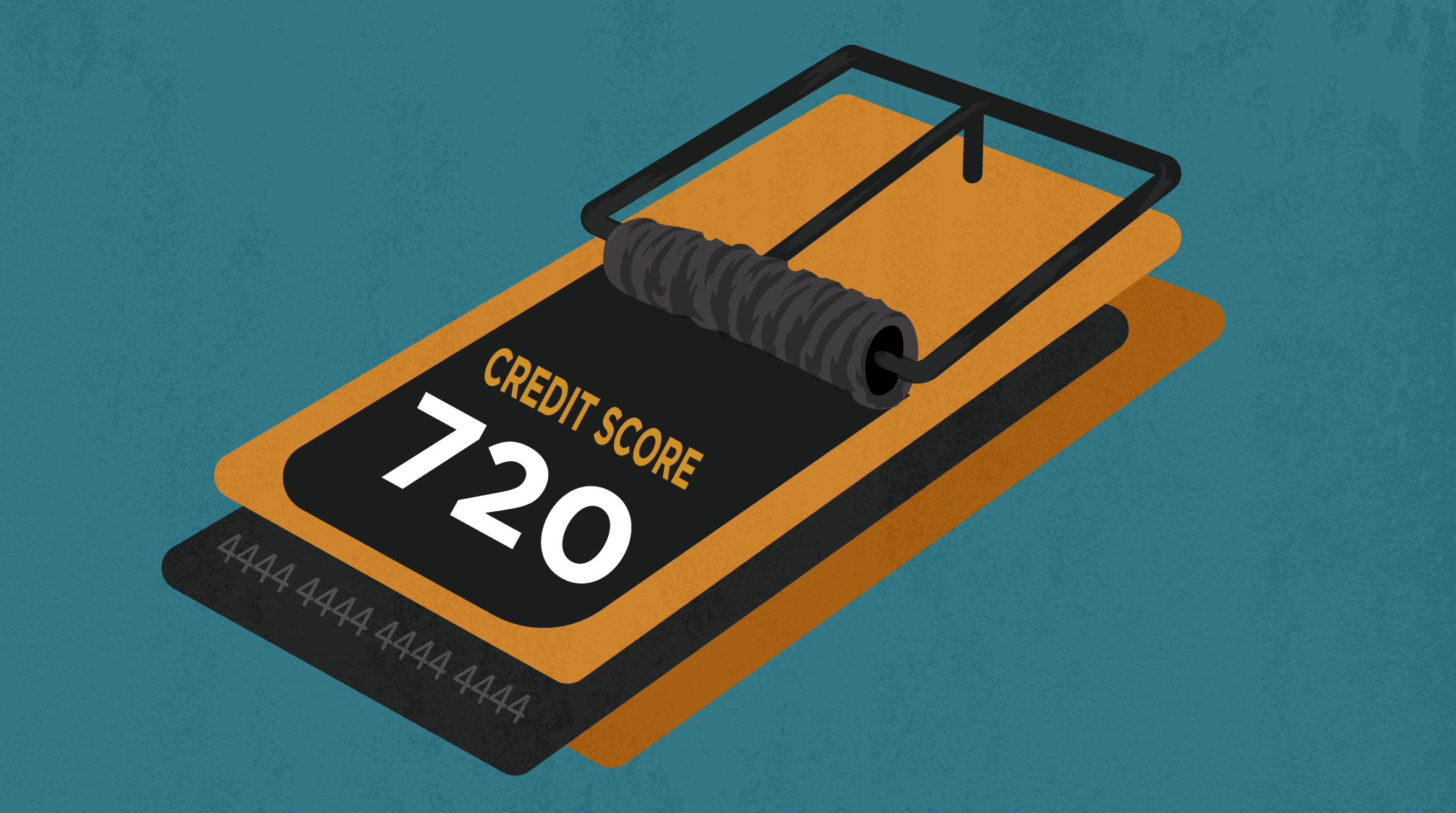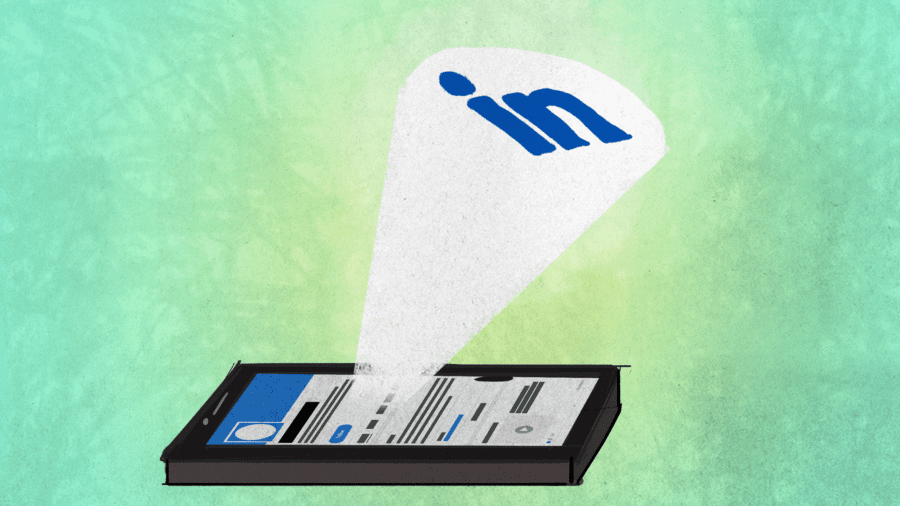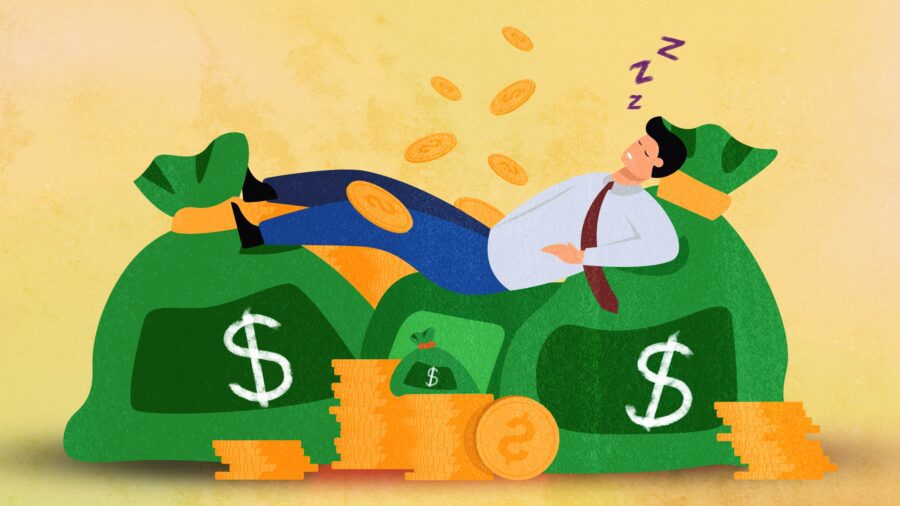
A Beginner’s Guide to Building a Great Credit Score While Avoiding Debt and Common Credit Mistakes
Do you know how to build an excellent credit score?
Your credit is a vital part of accumulating personal wealth. A great score will help you access important financial products including personal loans, desirable credit cards, private student loans, car loans, and mortgages.
With exceptional credit, you can expect easier access to crucial financing and better rates and perks from banks, credit card companies, and other lenders. Your score can also impact your ability to rent property and vehicles, and it can even impact your car and life insurance policies.
Unfortunately, many people struggle with bad credit due to overwhelming debt and a lack of financial education. In this article, you’ll learn how to build credit for the first time and improve an existing credit score.
How Is a Credit Score Calculated?
Before diving into what you need to do to improve your credit score to optimize your personal finances, it’s essential to understand the different factors that will impact your score. This section will illuminate potential problems with your score and answer the common question, “Why is my credit score going down?”
Your credit score can range anywhere from 300 to 850. According to Equifax, one of the three major credit bureaus along with Experian and TransUnion, a 300 to 579 is considered poor, 580 to 669 is fair, 670 to 739 is good, 740 to 799 is very good, and 800 to 850 is excellent.
So what factors will determine your score?
The primary factors that determine your credit score are your:
Payment history — your ongoing history of making on-time payments toward your debts. This makes up 35% of your credit score.
The amount you owe — your credit utilization rate (more on that later) heavily impacts your score. This makes up 30% of your credit score.
Credit history length — the amount of time you’ve had credit accounts. This makes up 15% of your credit score.
New credit and hard inquiries — having too many recent credit accounts or hard inquiries will negatively impact your credit. This makes up 10% of your credit score.
Credit mix: Having a combination of different credit accounts, including credit cards, student loans, mortgages, and other financial products, will help you improve your score. Your credit mix makes up the final 10% of your score.
How Long Does It Take to Build Credit?
When you open a credit account for the first time, it will typically take between three to six months of regular credit activity to obtain your first credit score.
The amount of time it takes to improve an existing credit score will depend on your credit history and health.
If you have a good score with no delinquencies and regular on-time payments, you’ll likely be able to improve it within only a few months when you make wise credit decisions.
Unfortunately, if you have a poor credit score with a history of missed payments, substantial balances, and a high credit utilization rate, it will likely take much longer to revitalize your score.
This may sound discouraging, but the key to obtaining an excellent credit score and improving your personal finances is knowledge, organization, hard work, and perseverance. You are more than capable of strengthening your score and eventually obtaining a great credit rating.
You can use these tools to build your credit score and manage your money like a pro.
Check Your Credit Reports
The three major national credit bureaus, Equifax, Experian, and TransUnion, each create a credit report, and the first step to building or improving credit is seeing your official reports.
Many people use credit monitoring applications and websites such as Credit Karma and Credit Sesame. Although these services offer convenience, there have been instances in which users have received inaccurate scores.
To ensure the accuracy of your three credit reports, consider requesting your official credit report from annualcreditreport.com. You’re entitled to a copy of your three credit reports every year.
When you obtain your credit reports, you’ll be able to identify the activity that hurts your score, which may include late payments, high credit card balances, closed accounts, and collections.
In addition to helping you improve your credit habits, obtaining your official credit reports will also reveal if any errors impact your score. Errors are far more common than you may think — the Federal Trade Commission found that 5% of consumers had errors on their reports in 2013.
Mending any errors on your reports, such as incorrect delinquencies, will improve your credit.
Join In 200 Million+ On The Journey to Greatness
Guarantee On-Time Payments
In order to build credit, you need to use different credit accounts, but you also need to ensure that you make regular, on-time payments to avoid delinquencies. Missing a payment on your credit card, auto loan, student loan, or another form of credit will hurt your score.
A significant part of your credit score is your financial track record, and making on-time payments illustrates that you’re a responsible borrower. When you miss a payment on your credit card or another credit account, the delinquency can remain on your credit report for up to seven years!
Not only will missing a payment affect your credit score — it will also mean having to pay more because of accumulating interest.
It’s important to have an organized system to ensure that you make on-time payments, such as a paper or digital filing system to organize your monthly payments and credit bills. You can also use due-date alerts to inform you when a payment date approaches.
You can also set up automatic payments toward your credit accounts each month. When you set up autopay on your different accounts, you guarantee that your payments will be on time, but you need to have a good handle on your bank accounts in order to avoid overdrafts.
Manage Spending
Credit card holders often fall into debt because of a lack of financial organization and overspending. Although you should use your credit cards regularly to continue building credit, you must avoid buying things you cannot afford.
Unfortunately, those who don’t have a handle on their finances tend to overspend unknowingly. With each passing month, they may rack up a higher and higher credit card balance, which will become increasingly difficult to pay off because of interest.
It’s critical to avoid this mistake because it can put you in a tremendously difficult financial situation and hurt your credit score.
You have what’s known as a “credit utilization rate,” and this means the percentage of your credit limit that you’ve already used at a given time. For example, if you have a credit limit of $10,000 and have a $7,000 balance on your credit card, you’ve used 70% of your credit.
It’s important to keep your credit utilization rate under 30% and to try to pay off your entire balance each month when possible.
To do this, you’ll need to keep track of your credit card spending in relation to your income, and budgeting is the best way to ensure that you don’t overspend and rack up a balance. If you already have a balance on your credit card or need to pay off a loan, you can include a section in your budget for paying off existing debts.
As your utilization rate decreases because you’re shrinking your balance over time, you’ll improve your credit score.
Avoid Having Too Many Hard Inquiries
Have you ever applied for a credit card or loan and immediately found yourself asking, “Why did my credit score drop?” This occurs because when a potential lender makes a hard inquiry into your credit history, your credit score will suffer a small amount of damage.
When checking credit, there are two inquiry types: soft inquiries and hard inquiries. Unlike hard inquiries, soft inquiries do not affect your credit score.
If you check your own credit through Credit Karma or Annualcreditreport.com, you’re only making a soft inquiry into your credit history. This is also the case if a potential employer or a financial institution you already work with checks your account.
Have you ever received a credit card offer saying you qualify for a particular credit amount? That credit card company performed a soft inquiry into your credit history to determine your pre-approval offer.
If you apply for a credit card, auto loan, mortgage, student loan, or another form of credit, the potential lender will make a hard inquiry into your credit history, which will have a small negative impact on your score. For that reason, it’s best not to apply for too many new credit accounts over a short period.
Keep Your Credit Accounts Open
Your credit age accounts for 15% of your credit score, and the more credit history you have, the more likely you’ll have a favorable score. The major credit bureaus determine your credit history through the ages of your oldest and newest credit accounts and the average age of your accounts.
Because credit bureaus favor older accounts, it’s important not to close your credit accounts unless it’s a paid-off student loan, mortgage, or lease. When you close a credit account, it will remain on your credit history, but keeping your old credit card accounts open and in good standing is optimal for enhancing your score.
Additionally, closing a credit account will likely hurt your credit utilization rate because it shrinks your available credit. Let’s say that you have a balance of $1,000 on a credit card and the credit limit on the card is $8,000. You also have an old credit card with no balance with a credit limit of $2,000. As it stands, your credit utilization rate is 10%, but if you were to close your older credit card account, you would only have a total credit limit of $8,000, meaning your credit utilization rate would be 12.5%.
One important note is that if you don’t use a credit card, the credit card account may automatically close after 12 months of inactivity. For that reason, you should make small monthly purchases using the card and then pay off your balances each month to keep your credit utilization rate low.
Become an Authorized User On Someone Else’s Account
Although building your credit score will take time, one way in which you can expedite the process is by becoming an authorized user on someone else’s account. When you become an authorized user, you’ll officially have permission to use another person’s credit card, but you won’t be legally liable for any credit card charges.
Building credit for the first time or repairing credit is sometimes challenging due to a lack of credit-building opportunities. Many introductory credit cards require a deposit of a few hundred dollars, and not everyone is in the financial position to make such an investment.
When becoming an authorized user, you can forego some of the hurdles of building credit for the first time, and gaining permission to use another’s credit card account can also benefit those with a good credit score.
One important note is that the primary cardholder has the potential to both help and hurt your credit. If you become an authorized user for someone who is reliable, makes on-time payments, and has a low credit utilization rate, their credit card account will likely assist you in strengthening your credit.
On the other hand, if they’re an irresponsible user, they can bring down your credit score. As their credit score declines due to unwise borrowing habits, your score will also decrease. For that reason, it’s critical to become an authorized user to someone trustworthy and fiscally responsible.
Discover Even More Resources For Enhancing Your Credit
The path to building great credit takes time, discipline, and persistence, but you have the power to get organized and grow your credit to a robust score.
If you’re looking for more ways to build your credit, master your personal finances, and live with more economic satisfaction, you can check out fascinating and helpful resources online including Investopedia, Forbes, Wealth Tender, and other articles on Greatness.com!
You deserve to uncover your full credit potential, and you can strive for financial freedom and security through your responsible credit building.
Greatness Authors
Greatness Authors is a collection of writers, thinkers, curiosity experts, and students of the world who are committed to bringing you the most up-to-date, impactful, and inspiring information surrounding Greatness topics.

15 Insightful Questions to Ask at Your Next Networking Event That Will Boost Your Credibility

9 Signs You Have Imposter Syndrome at Work and How to Overcome Performance Insecurity

The Young Professional’s Guide to Advocating for Yourself at Work & Setting Healthy Boundaries

A Beginner’s Guide to Amplifying Your Personal Brand on LinkedIn Using Creator Mode

Women & Business: 13 Eye-Opening Statistics That Prove We Need More Women in Executive Roles










